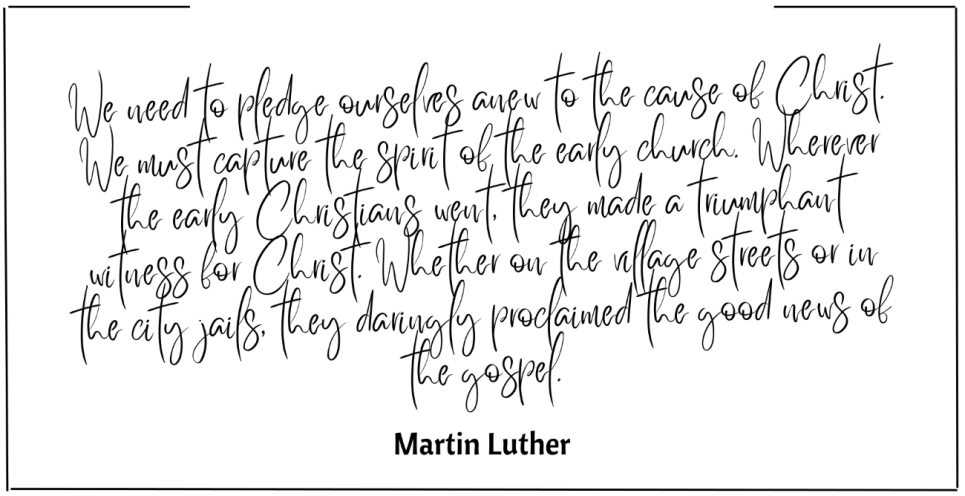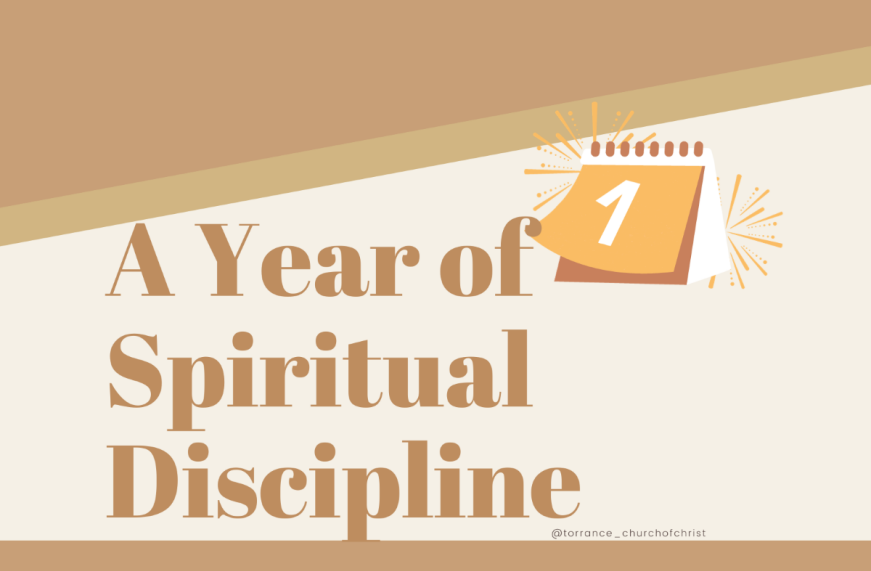 In last week's post (that you can read here), we established that those who are faithful and whose hearts are founded in God’s Words are able to decipher and understand His messages. We shared the following scriptures from the Parable of the Sower that emphasized this point:
In last week's post (that you can read here), we established that those who are faithful and whose hearts are founded in God’s Words are able to decipher and understand His messages. We shared the following scriptures from the Parable of the Sower that emphasized this point:
+
“Because the knowledge of the secrets of the kingdom of heaven has been given to you, but not to them. Whoever has will be given more, and they will have an abundance. Whoever does not have, even what they have will be taken from them.”
Matthew 13:11-12
+
“But blessed are your eyes because they see, and your ears because they hear. For truly I tell you, many prophets and righteous people longed to see what you see but did not see it, and to hear what you hear but did not hear it.”
Matthew 13:16-17
+
He told them, “The secret of the kingdom of God has been given to you. But to those on the outside everything is said in parables”
Mark 4:11
+
He said, “The knowledge of the secrets of the kingdom of God has been given to you, but to others, I speak in parables”
Luke 8:10
+
To further highlight that Jesus used parables as a way to conceal and reveal:
+
Jesus spoke all these things to the crowd in parables; he did not say anything to them without using a parable. So was fulfilled what was spoken through the prophet:
“I will open my mouth in parables, I will utter things hidden since the creation of the world.”
Matthew 13:34-35
+
Jesus is referring to:
+
I will open my mouth with a parable; I will utter hidden things, things from of old—
Psalm 78:2
+
This week, we will expand on the mysteries of God’s Word being unearthed.
Mysteries In The Old Testament
+
Let the wise listen and add to their learning, and let the discerning get guidance— for understanding proverbs and parables, the sayings and riddles of the wise
Proverbs 1:5-6
+
Throughout the Old Testament, God reveals His mysteries to those who follow His law. Only His most righteous followers were granted special authority to receive revelation so that they could teach and spread His word.
+
Surely the Sovereign Lord does nothing without revealing his plan to his servants the prophets.
Amos 3:7
+
The secret things belong to the Lord our God, but the things revealed belong to us and to our children forever, that we may follow all the words of this law.
Deuteronomy 29:29
+
The individuals who hardened their hearts toward God were unable to comprehend the vital implications of the law.
+
Son of man, you are living among a rebellious people. They have eyes to see but do not see and ears to hear but do not hear, for they are a rebellious people.
Ezekiel 12:2
+
They know nothing, they understand nothing; their eyes are plastered over so they cannot see,
and their minds closed so they cannot understand.
Isaiah 44:18
+
Chapter two in the Book of Daniel provides an instance where God revealed Himself. During his second year of reign, King Nebuchadnezzar began having dreams that left him to endure fitful sleep. He reached out to magicians, enchanters, sorcerers, and astrologers in hopes that they could interpret his dreams. The men were unable to interpret the dreams, and the king wanted Daniel and his friends to execute the men. Daniel couldn’t understand the harsh punishment that the king had issued, so he went to the king and offered to interpret the dreams. Daniel was fearful that if he could not interpret the dreams, he and his friends might also be ordered to be executed. So Daniel did what he thought best, and reached out to God:
+
He urged them to plead for mercy from the God of heaven concerning this mystery, so that he and his friends might not be executed with the rest of the wise men of Babylon. During the night the mystery was revealed to Daniel in a vision. Then Daniel praised the God of heaven and said:
“Praise be to the name of God for ever and ever; wisdom and power are his.
He changes times and seasons; he deposes kings and raises up others.
He gives wisdom to the wise and knowledge to the discerning.
He reveals deep and hidden things; he knows what lies in darkness, and light dwells with him.
I thank and praise you, God of my ancestors:
You have given me wisdom and power, you have made known to me what we asked of you, you have made known to us the dream of the king.”
Daniel 2:18-23
+
Because of Daniel’s faith, God revealed the meaning of the dreams to him. Daniel went forth to the king and gave an interpretation.
+
Daniel replied, “No wise man, enchanter, magician or diviner can explain to the king the mystery he has asked about, but there is a God in heaven who reveals mysteries. He has shown King Nebuchadnezzar what will happen in days to come. Your dream and the visions that passed through your mind as you were lying in bed are these:
“As Your Majesty was lying there, your mind turned to things to come, and the revealer of mysteries showed you what is going to happen. As for me, this mystery has been revealed to me, not because I have greater wisdom than anyone else alive, but so that Your Majesty may know the interpretation and that you may understand what went through your mind.
Daniel 2:27-30
Afterward, the king was so pleased with Daniel and declared:
+
The king said to Daniel, “Surely your God is the God of gods and the Lord of kings and a revealer of mysteries, for you were able to reveal this mystery.”
Daniel 2:47
+
Daniel’s faithfulness, righteousness, and willingness to turn toward God permitted God to reveal Himself to Daniel. Daniel’s account is just one of many within the Old Testament.
Mysteries In The New Testament
+
For whatever is hidden is meant to be disclosed, and whatever is concealed is meant to be brought out into the open.
Mark 4:22
+
The promise that everything hidden will be unveiled is all throughout the New Testament (example: Matthew 10:26-27, Luke 8:17).
But as the hour of His death neared, Jesus began to speak plainly to His disciples.
+
Though I have been speaking figuratively, a time is coming when I will no longer use this kind of language but will tell you plainly about my Father.
John 16:25
+
He then began to teach them that the Son of Man must suffer many things and be rejected by the elders, the chief priests and the teachers of the law, and that he must be killed and after three days rise again. He spoke plainly about this, and Peter took him aside and began to rebuke him.
Mark 8:31-32
+
Christ taught His disciples so that when His time on Earth came to an end, the Word of God would continue to be taught.
+
At that time Jesus said, “I praise you, Father, Lord of heaven and earth, because you have hidden these things from the wise and learned, and revealed them to little children. Yes, Father, for this is what you were pleased to do.
All things have been committed to me by my Father. No one knows the Son except the Father, and no one knows the Father except the Son and those to whom the Son chooses to reveal him.”
Matthew 11:25-27
+
After Christ’s death, the disciples built up churches and the Christian faith. They revealed the mysteries Jesus had bestowed to all who would listen (also see Ephesians 3:3-6, Romans 16:25-26, Titus 1:1-3, Ephesians 3:8-9, Colossians 2:2-3).
+
He made known to us the mystery of his will according to his good pleasure, which he purposed in Christ, to be put into effect when the times reach their fulfillment—to bring unity to all things in heaven and on earth under Christ.
Ephesians 1:9-10
+
I have become its servant by the commission God gave me to present to you the word of God in its fullness— the mystery that has been kept hidden for ages and generations, but is now disclosed to the Lord’s people.
Colossians 1:25-26
+
Above all, you must understand that no prophecy of Scripture came about by the prophet’s own interpretation of things. For prophecy never had its origin in the human will, but prophets, though human, spoke from God as they were carried along by the Holy Spirit.
2 Peter 1:20-21
+

Through Christ, We Can Know the Truth
+
“I have testimony weightier than that of John. For the works that the Father has given me to finish—the very works that I am doing—testify that the Father has sent me. And the Father who sent me has himself testified concerning me. You have never heard his voice nor seen his form, nor does his word dwell in you, for you do not believe the one he sent. You study the Scriptures diligently because you think that in them you have eternal life. These are the very Scriptures that testify about me, yet you refuse to come to me to have life.
“I do not accept glory from human beings, but I know you. I know that you do not have the love of God in your hearts. I have come in my Father’s name, and you do not accept me; but if someone else comes in his own name, you will accept him. How can you believe since you accept glory from one another but do not seek the glory that comes from the only God?
“But do not think I will accuse you before the Father. Your accuser is Moses, on whom your hopes are set. If you believed Moses, you would believe me, for he wrote about me. But since you do not believe what he wrote, how are you going to believe what I say?”
John 5:36-47
+
Those who followed the law in the Old Testament were able to receive revelation through God. But once Christ came to Earth, faith in Him and His teachings became the pivotal condition to unlocking the meaning of the scriptures and heavenly mysteries. Christ became the Word, and through Him, we will know the truth.
+
In the beginning was the Word, and the Word was with God, and the Word was God. He was with God in the beginning. Through him all things were made; without him nothing was made that has been made. In him was life, and that life was the light of all mankind. The light shines in the darkness, and the darkness has not overcome it.
There was a man sent from God whose name was John. He came as a witness to testify concerning that light, so that through him all might believe. He himself was not the light; he came only as a witness to the light.
The true light that gives light to everyone was coming into the world. He was in the world, and though the world was made through him, the world did not recognize him. He came to that which was his own, but his own did not receive him. Yet to all who did receive him, to those who believed in his name, he gave the right to become children of God— children born not of natural descent, nor of human decision or a husband’s will, but born of God.
The Word became flesh and made his dwelling among us. We have seen his glory, the glory of the one and only Son, who came from the Father, full of grace and truth.
John 1:1-14
+
This is good, and pleases God our Savior, who wants all people to be saved and to come to a knowledge of the truth. For there is one God and one mediator between God and mankind, the man Christ Jesus, who gave himself as a ransom for all people. This has now been witnessed to at the proper time.
1 Timothy 2:3-6
+
No, we declare God’s wisdom, a mystery that has been hidden and that God destined for our glory before time began. None of the rulers of this age understood it, for if they had, they would not have crucified the Lord of glory. However, as it is written:
“What no eye has seen, what no ear has heard,
and what no human mind has conceived”— the things God has prepared for those who love him— these are the things God has revealed to us by his Spirit.
The Spirit searches all things, even the deep things of God. For who knows a person’s thoughts except their own spirit within them? In the same way no one knows the thoughts of God except the Spirit of God. What we have received is not the spirit of the world, but the Spirit who is from God, so that we may understand what God has freely given us. This is what we speak, not in words taught us by human wisdom but in words taught by the Spirit, explaining spiritual realities with Spirit-taught words. The person without the Spirit does not accept the things that come from the Spirit of God but considers them foolishness, and cannot understand them because they are discerned only through the Spirit. The person with the Spirit makes judgments about all things, but such a person is not subject to merely human judgments, for,
“Who has known the mind of the Lord so as to instruct him?”
But we have the mind of Christ.
1 Corinthians 2:7-16
+
But Sometimes, We May Need Some Additional Support
Even today, God’s messages are concealed. Sometimes, you may have difficulty understanding a certain chapter in the Bible, or you might struggle with relating and connecting to a Biblical event. Don’t let that deter you. Even Christ’s twelve disciples needed some extra explanation to help them discern His messages.
+
With many similar parables Jesus spoke the word to them, as much as they could understand. He did not say anything to them without using a parable. But when he was alone with his own disciples, he explained everything.
Mark 4:33-34
+
It is important to note that despite requiring supplemental clarification, the disciples were privileged to receive it. In contrast to those who couldn’t comprehend Christ’s messages, His disciples were able to be taught and understand. In fact, they were eager to understand and learn. There are multiple instances where once in private, the disciples inquired of Jesus to further explain His messages (Mark 10:10, Mark 9:28, Luke 8:9, Matthew 13:36, just to name a few). His disciples needing further explanation emphasize the point that man is imperfect, and we need to lean on God.
Even after His time on Earth, His disciples continued to seek His guidance.
+
Pray also for me, that whenever I speak, words may be given me so that I will fearlessly make known the mystery of the gospel
Ephesians 6:19
+

Wrapping Up
+
Simon Peter answered, “You are the Messiah, the Son of the living God.”
Jesus replied, “Blessed are you, Simon son of Jonah, for this was not revealed to you by flesh and blood, but by my Father in heaven. And I tell you that you are Peter, and on this rock I will build my church, and the gates of Hades will not overcome it. I will give you the keys of the kingdom of heaven; whatever you bind on earth will be bound in heaven, and whatever you lose on earth will be lost in heaven.” Then he ordered his disciples not to tell anyone that he was the Messiah.
Matthew 16:16-20
+
Christ is the fundamental panacea to obtaining insight into God’s mysteries. Continue to read your scriptures, attend worship, and pray for the ability to understand. Build your relationship with God, and He will unveil His sacred mysteries to you.
















